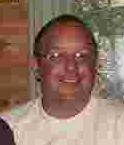Bob Zordani

|
Bob Zordani |
 |
|
Speeding with Dom So here we are, Dom, you and me, speeding up 57, the interstate of recollection, regret, and yearning,
rehashing
this and that yesterday, the scent of ex-lovers,
faces
and days, the yellowed pages of our dreams.
I
see them wave from miles off, elbows bent, arms moving
If
I could go back, dip into the years, I would not
the
same path I have worn to now. You, too,
Direction
is simple, friend. There is only one: the one we take.
now
sprouts language, metaphor, sentences out of nowhere,
blinding.
And it is. Her eyes are suns, Dominic, stars
Yet
hope is this horizon, the swing of stars and seasons.
through
gullies and creek beds, over barbed wire §§
Up there on stage, our Uncle Filthy shakes his head and stomps his feet and rolls his tongue impossibly, as if his every note makes up a secret code that only he can understand. I play guitar and bass – percussion in a pinch – but I can’t run a single scale on my harmonica the way our Uncle Filthy can. And hell, it must be lonely when he’s practicing inside that hovel of a house he rents all by himself except for those two hounds who howl all night and keep my wife awake. Annie has precious little tolerance for Uncle Filthy’s lack of etiquette. She says it’s truly vile the way he leaps across the stage and giggles at the girls and draws them up beneath the colored lights and lets them sing duets with him – off key and out of time – before he slaps them five and sends them squealing back into the swell. Annie calls him a rake, which isn’t far from true, but she can’t see that this is what a bar crowd wants: the simple chance for some small fame, the chance to jam, to really jam, to kick it with the band and be a star for once, to shine at last, right there, right then. When I see Filthy lounging on his porch, I lift my National out of its case, grab the whiskey, and sneak across the lawn. We knock off blues – old moans and buckdances mostly – though Filthy calls for spirituals when it gets good and dark and all the lights around the neighborhood starting blinking out. It’s then his boorish voice rings clear and true, though he himself does not believe a word of what he sings. The power’s in the tunes themselves, he likes to say, not what they mean to Jesus freaks. Our Filthy’s full of shit if nothing else, though I don’t mind his blunt philosophy the way my Annie does. She doesn’t want me picking over there on Uncle Filthy’s porch, especially so late, and when she’s had enough of it, her harsh pronouncement rattles up the block. Last call, old men, she snaps, and shuts the door. I clench my jaw, then toast to Filthy’s health. Our tumblers clink. We toss the whiskey back and pound out one more song, a twelve bar blues in E major, some gritty three-chord thing about a man who can never go home.
§§§§ |
||